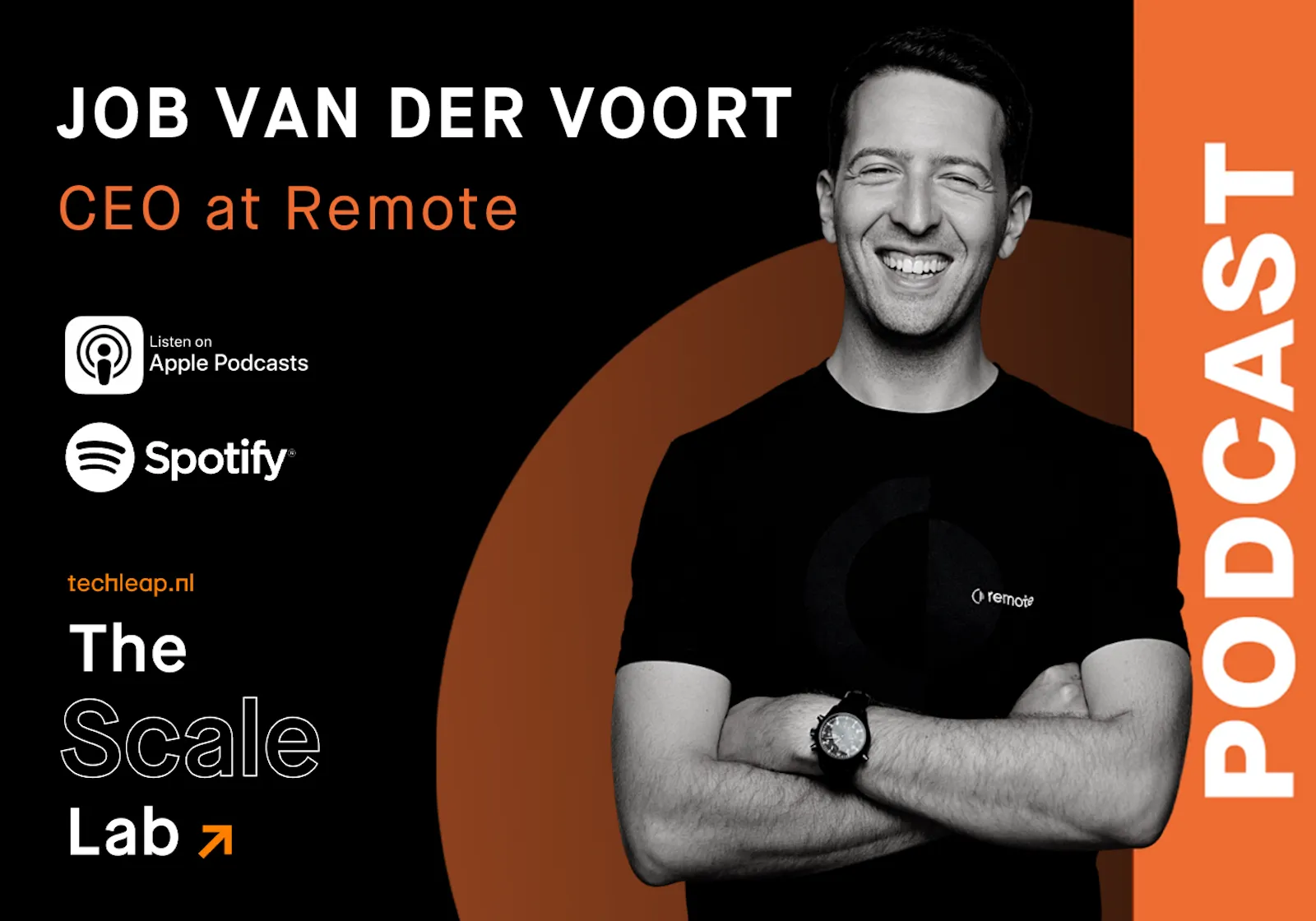April 8, 2022
Shaping the future of global employment and reinventing the culture of scaling with Job van der Voort, CEO of Remote

Job: Even before we’ve started the company, we knew that hiring worldwide was a problem that needed to be solved, since there were multiple businesses focusing on that already. However, those businesses were not able to deliver a hiring solution that was purely a service. Most of them were essentially large consultancies that hired tens or hundreds of people to do recruitment for entreprises. Their services were expensive and lacking automation. Hence, we saw that there is a gap in the market that we could fill.
And so when we started the company, we knew that we have to set up the operational infrastructure ourselves, so that we’re not dependent on any other parties. And that took us a really long time, almost a year and a half, to open up to customers and actually provide a tangible product. That said, by the time we opened up, we had a really good understanding of what would make people switch from using competitors’ products to ours. Plus, because we were very deliberate with shaping our solution to a high standard, once we publicly released Remote, we immediately got few customers in store. However, to be clear, Remote wasn’t perfect when we launched. In fact, even today, we don’t have everything fully automated or fully productised. The amount of work that we still have to accomplish will keep us busy for quite a while.
Job: I think the first goal I set for myself was to serve at least a million people with Remote. We already have thousands of customers, so reaching a million is something attainable within a decade or so.
Job: We have to expand country by country because we need to open up local entities in every country to understand how things work in each market and what we need to do so stay compliant. We have made some basic assumptions on processes and business rules that are common in most countries and built our product around those assumptions. Once we expand to a new country, we then figure out the exact details and see if we have to make adjustments to those assumptions.
In the beginning, we were going for the least ‘painful’ market choice for us. So those were the countries that were physically close to the Netherlands, since the proximity allowed us to travel often to the newly opened offices to fix and sign things whenever needed. Currently we are present in more than 60 countries worldwide, so you can say we are at a point where we are fully demand-driven.
Job: I think scaling your culture as you grow is key here. There are values that we have as a company and try to preserve while we scale. One of them is to accept our failures, have very clear guidelines on how we communicate with each other, minimise the number of meetings teams have to the strictly necessary only. We’ve created an environment where everybody gets a lot of ownership. This means that we can be more efficient with our time, which would otherwise have been spent in meetings to discuss managerial things. Instead, we create space for people to get to know each other during work hours, hang out, and play games. As an employer, you want to provide enough opportunities for employees to informally get to know each other, regardless of the company’s increasing size.
Job: I think this initiative is a very natural fit for our mission. The mission of Remote is to help any individual to build a better live for themselves. We have the needed knowledge and infrastructure to accomplish this, so it was a no-brainer for us. With the invasion of Ukraine, we’ve started talking to a lot of employers who were willing to employ Ukrainian professionals for their skillsets, but didn’t know the practicalities behind the hiring process. That’s exactly why we built Remote for Refugees – to be able to help any individual refugee get employed regardless of the country they are fleeing from.

 Why did we build an art installation for our Bold community launch event?
Why did we build an art installation for our Bold community launch event?